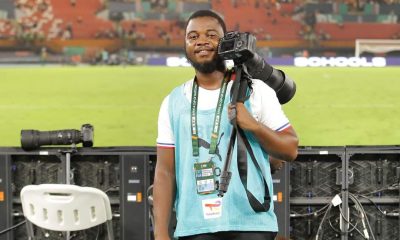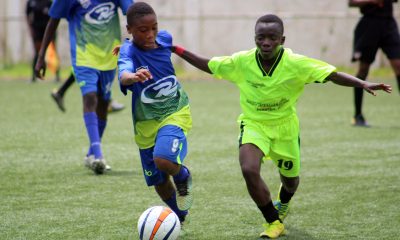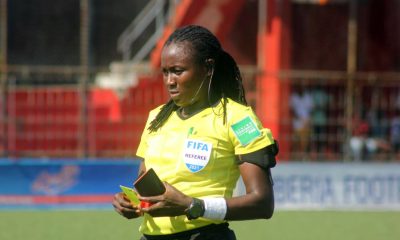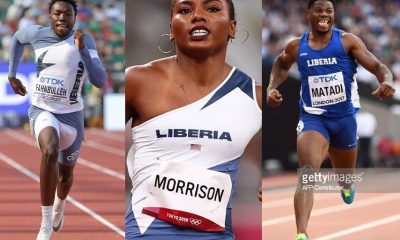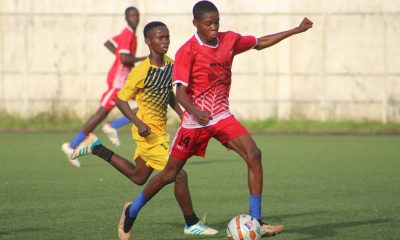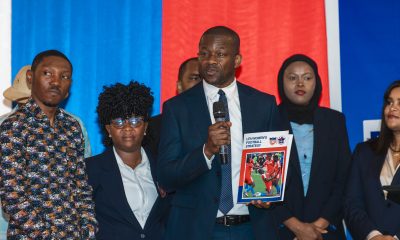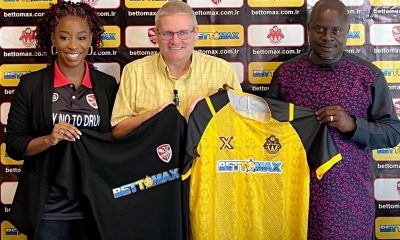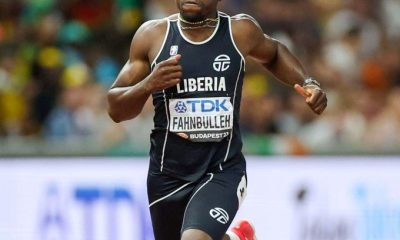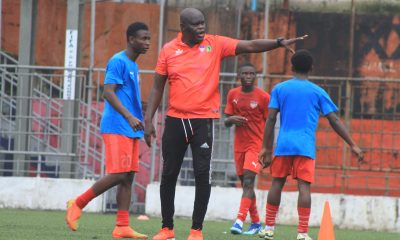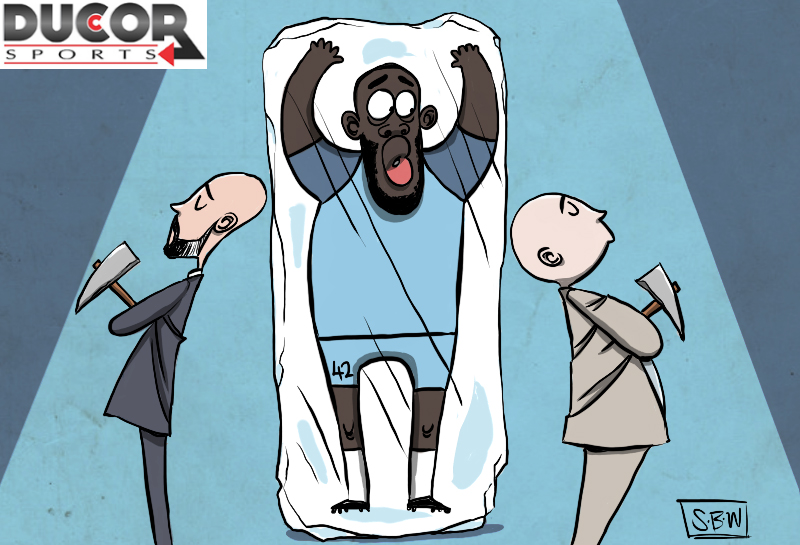
2017 has undoubtedly been Mohamed Salah’s year. The 25-year-old Liverpool attacker has already netted 12 goals in 15 Premier League appearances for the Merseyside club this season as he further cements himself as one of Africa’s leading players in the world today.
Salah is among the 11 nominees shortlisted from the original 30 in the 2017 Player of the Year Confederation of African Football (CAF) Awards category where he will, in opinion, win by a landslide.
For Salah, it has been a huge year for the winger. In England, he has already won the hearts of Liverpool fans and against all odds is still topping the top scorer’s chats. Back home, the explosive winger has also been turned into a cult hero for expertly taking the penalty in the final minutes against Congo in Alexandria that ensured a 2-1 win which sent Egypt through to its first World Cup since 1990.
His Journey.
Born in the Egyptian city of Basyoun, north of Cairo, Mo Salah’s footballing journey began in the Nasr City district of the country’s capital. A talented youngster, he honed his skills in the youth teams of El Mokawloon SC, and made his debut for the senior side aged just 17 at the back end of the 2009-10 season, going on to make five appearances in total.
In the absence of domestic football after the cancellation of Egyptian Premier League fixtures, Egypt’s U-23 teams were invited to play a friendly match against Basel at the Stadion Rankhof in March 2012. The Swiss club had already been keeping tabs on Salah and was fully convinced of his talents when he scored two goals as a second-half substitute in that fixture.
He won the Swiss Super League in his first season with Basel and was awarded the CAF Most Promising African Talent of the Year in 2012. In 2013, he was awarded the SAFP Golden Player award for being the best player in the Swiss Super League before making a switch to Chelsea.
With competition from Eden Hazard, Willian, Andre Schurrle and Victor Moses, the 21-year-old (at the time) found playing time hard to come by. He opted for a loan move to Fiorentina where he was an instant hit (on loan) and later to Roma before transferring to Liverpool in 2017.
The former Roma forward is an exciting, lightning speed but also erratic attacker who despite missing nearly two months through injury and helping his national team reach the final of the African Nations Cup, racked up 19 goals and 12 assists in all competitions for Roma and was one of Serie A’s most effective players. His goals also helped Roma into the UEFA Champions League and in the summer, he became the most expensive African Footballer ever when he transferred to Liverpool.
At Liverpool, Salah has quickly settled in beginning life at Anfield with 12 goals and four assists in his first 18 games. To look at his highlights is to see a player already equipped for the highest level of football, but what strikes the viewer most watching him over 90 minutes is his margin for improvement. AC Milan coach Vincenzo Montella said that “perhaps only Messi is faster than him with the ball at his feet,” after signing him on loan as Fiorentina boss.
Salah has been regarded as more of a wide player than a natural striker, but his outstanding performances mark him down as the single most dangerous left-footed forward in the Premier League. The 25-year-old loves to surge upfield on the counter-attack, drive into the penalty area with angled runs from deep, and add an extra body inside the penalty area.
Statistically, Salah is more lethal in front of goal than even Luis Suarez at his Liverpool peak. Although a 12-match period does not offer the same credibility as a full campaign and Suarez shot a lot more often, Salah’s consistency at hitting the target and his terrific conversion rate make him equally as dangerous. If he maintains his current form, Salah has a chance of breaching the 30-goal barrier that the Uruguayan smashed in his final season at Anfield.
His main competition in this year’s nominees is Borussia Dortmund’s sensation Pierre-Emerick Aubameyang. He is the only previous winner among the nominees since 2016 winner after current holder Riyad Mahrez was snubbed from the original 30-man shortlist. Mahrez, 26 has struggled this season failing to recapture the form that saw Leicester City win the Premier League title in 2016 and was subsequently axed by Algeria, whose results have declined dramatically since reaching the second round of the 2014 World Cup in Brazil.
Aubameyang is a top contender having scored 40 goals and made 5 assists in 46 appearances for Borussia Dortmund last season. His achievements are underlined by the fact that he beat Bayern Munich striker Robert Lewandowski to the Golden Boot in the Bundesliga, but Gabon’s poor performance at the just concluded AFCON games might hinder his chances of lifting the award a second time. Former hosts Gabon were gravely disappointing on home soil at the continental showdown games in January, exiting in the group stages.
Also shortlisted are Senegal and Liverpool forward Sadio Mane, Guinea and RB Leipzig central midfielder Naby Keita, Nigeria and Chelsea forward Victor Moses and Uganda’s goalkeeper Denis Onyango. Onyango, who plays for Mamelodi Sundowns, is the only goalkeeper nominee and has also been named in a 10-man shortlist for the same award for players based in Africa. The others are Burkina Faso and Lyon’s Bertrand Traore, Morocco and Feyenoord’s Karim El Ahmadi, Algeria and Porto’s Yacine Brahimi, Cameroon and Porto’s Vincent Aboubakar and Senegal’s Keita Blade who also plays for Monaco.
Among the contenders for this year’s individual award, only one player based on the continent is in contention. Ugandan’s Captain Denis Onyango has been exceptional for his club and country explaining why he is still in contention for both awards.
Onyango, who is also still in contention to win the CAF Player of the Year (Based in Africa) award for the second year running, claimed the accolade in 2016, beating teammate Khama Billiat and Zambian Rainford Kalaba after helping the Sundowners win the CAF Champions League. However, they were eliminated in 2016 at the quarter-final stage by Wydad Casablanca, who went on to win the competition. Another undoing for the shot-stopper is that Uganda failed to qualify for the 2018 world after Egypt edged them to the top spot. Salah’s priceless goal saw the Pharaohs edge Uganda to reclaim top spot in Group E of the 2018 FIFA World Cup qualification campaign.
The shortlist was cut from 30 to 11 players after tallying votes from Head Coaches or Technical Directors of the National Associations and the selected ten members from the Independent Media and TV Consultants group.
The final phase of voting will involve head coaches or technical directors of the national associations taking part in the voting exercise and ten members from the independent media and TV consultants group.
For the first time, captains of the senior men’s national teams of the affiliated national associations will also take part in the decision-making process of the African Player of the Year and Player of the Year (Based in Africa).

